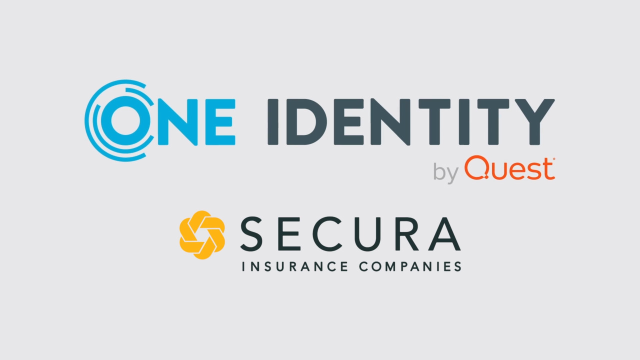Managing identities in a growing organization: Lessons from SECURA Insurance
 05:00
05:00
Related videos
The future of AI in Identity Security, with Martin Kuppinger and One Identity CEO Praerit Garg
Join One Identity CEO Praerit Garg and KuppingerCole Founder and Principal Analyst Martin Kuppinger as they discuss the evolution of IAM and thefuture of AI in ...
10:54
What is One Identity Manager?
Identity Manager is the heart of the One Identity Fabric, providing a centralized engine for complete identity governance. Ensure users have access to exactly w...
03:48
Automated provisioning and governance for healthcare company, B Braun
Join B Braun representatives Andreas Müller, IT project manager, and Michal Kasynski, identity manager engineer as they explore their choice of One Identity Man...
05:03
Responsible AI for improved security and better decision making
Is AI the right technology for the problem we’re trying to solve? That’s the question Brian Chappell, VP of product management at One Identity, and Andrew Hartn...
08:30
IAM Principal Consultant & Head of Center of Excellence One Identity - iC Consult
iC Consult’s partnership with One Identity has gone back a long time, thanks to the comprehensive One Identity portfolio of unified IAM solutions. Join Oliver P...
03:40
Safeguard: Using the double-edged sword of AI for good
Examine the function of AI in security tools, and how this double-edged sword can be used for good or ill in the cybersecurity sphere. Plus, see its integration...
03:29
Controlling non-human identities in your enterprise with One Identity
With every organization vying to automate away their cybersecurity problems, it’s easy to allow the machine identities taking on formerly manual tasks to becom...
02:46
IAM Compliance
Regulatory compliance is not a simple undertaking, but it is non-negotiable. Failing an audit can have dire consequences. Watch this video for strategies to emb...
08:59
One Identity keeps threats at bay for the University of Cyprus
Explore the benefits of One Identity Manager in the field of education with Despo Othonos, IT Systems Administrator at the University of Cyprus. One Identity...
06:26
ESS Eric automates IAM and the identity lifecycle with One Identity
The European Spallation Source Eric maintains comprehensive IAM with One Identity Manager – from start to finish. Join Rikard Krisle, Product Manager and So...
05:47
Mark your calendars: One Identity UNITE comes to Chicago in 2026!
Don’t miss the opportunity to join industry experts, partners and peers in Chicago for the 2026 UNITE customer and partner conference. Imagine a sellout conf...
00:23
Identity Manager: Proven and Trusted IGA
Learn the unique value that One Identity Manager provides to companies looking for an IGA solution to streamline their identity management while protecting thei...
03:03
One Identity approach to AI in cybersecurity
Larry Chinski, VP of Corporate Strategy at One Identity, explores the dual nature of AI in cybersecurity, highlighting how the company leverages predictive AI t...
03:20
Mark your calendars: One Identity UNITE comes to Vienna in 2026!
Don’t miss the opportunity to join industry experts, partners and peers in Vienna for the 2026 UNITE customer and partner conference. Imagine a sellout confe...
00:26
Unifiez et sécurisez votre IAM avec One Identity Fabric
Découvrez comment One Identity Fabric connecte vos solutions de sécurité des identités dans un écosystème unifié, renforcé par l'IA pour permettre des analyses ...
00:45
